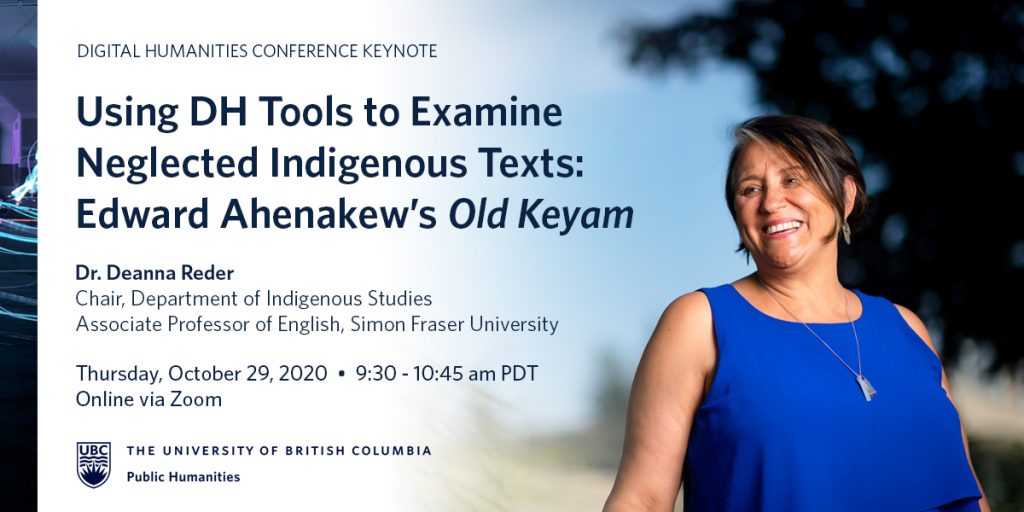
“Using DH Tools to Examine Neglected Indigenous Texts: Edward Ahenakew’s Old Keyam” by Dr. Deanna Reder
A keynote presentation for COLLABORATION: A Digital Humanities Conference.
This event is free and open to the public.
Note: If you are already registered for the full conference, you do not need to register for this event as you will have access to the Zoom link in the password-protected area of the DH conference site.
Thursday, October 29, 2020
9:30 – 10:45 AM (Pacific Time)
Online: register here
Dr. Deanna Reder is Chair of the Department of Indigenous Studies and Associate Professor of English at Simon Fraser University.
As part of the SSHRC funded The People and the Text: Indigenous Writing in Northern North America to 1992 our research team has given critical attention to a diverse set of texts by Indigenous authors in Canada including, for example, previously unpublished work by Secwepemc-Ktunaxa dramatherapist Vera Manuel, Inuit artist and writer Alootook Ipellie, and Métis activist James Brady. While some of the works we study have languished in archives or personal collections unread, some have been published but without consideration of the wishes of the author (eg. Maria Campbell’s Halfbreed). Given the colonial history of editing in Canada many original manuscripts by Indigenous authors merit examination to determine how much of their work was published as composed, what content was edited out, and how these changes affect the text. For this paper I will use Juxta and Variance Viewer to determine changes in the two versions of Cree writer Edward Ahenakew’s “Old Keyam”: the first composed in his lifetime (1885-1961) and the second published after his death, as part of Voices of the Plains Cree, released in 1973. Using Voyant tools I will be able to demonstrate the impact of the editorial decisions made on how we understand Ahenakew’s contribution to Indigenous writing in the first half of the twentieth-century in Canada; in addition, this method provides new ways to think of his corpus.
This talk will be recorded.